The trailing conversations, laughter and breathless sighs of young scholars training for the trek up Bascom Hill as they enter campus classrooms have shifted to the characteristic bleeps of signing in online for summer class.
“Please remember to sign in through the chat for attendance,” the instructor says, glancing up to see how many of the 12 to 20 initialed dots are populating the virtual classroom. It’s strangely quiet as the scholars scattered from Madison to Milwaukee settle in on computers, phones and tablets with their peers in the PEOPLE Summer University.
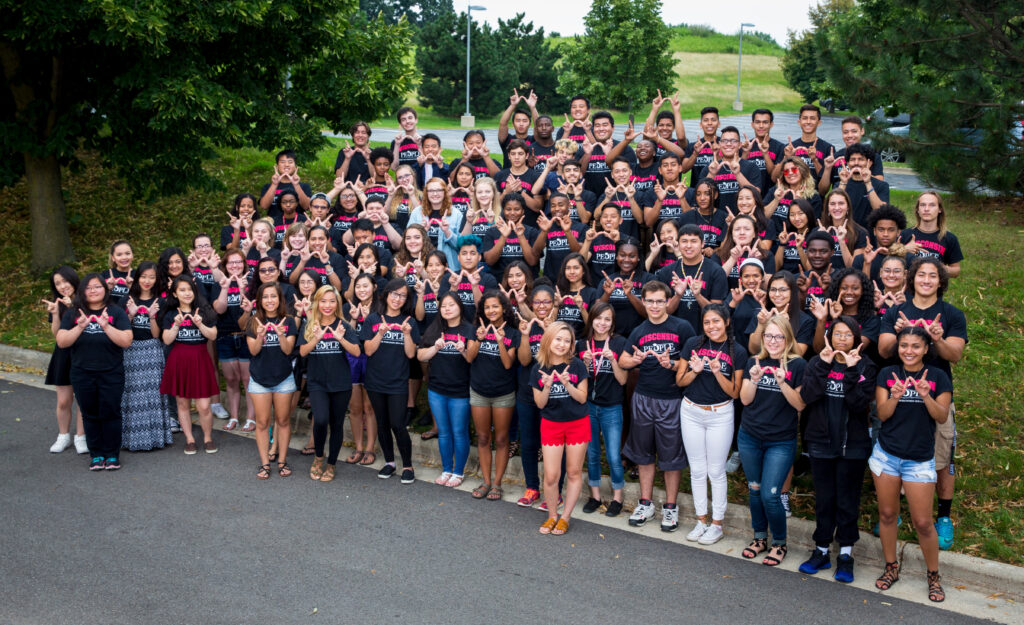
More than 430 UW-Madison PEOPLE Precollege Scholars committed themselves to staying on track in their journey to becoming Badgers by making the adjustments students across the nation have made. But they are also missing the in-person bonding with their cohort and other PEOPLE Scholars that will become the core of their campus family amid 45,000 students at UW-Madison representing 50 states and 134 countries.
“During a time when our students faced so many uncertainties, we wanted to provide them with some sense of normalcy,” said Kia Hunter, PEOPLE Precollege Assistant Director-Madison. “PEOPLE has been a part of their lives since grade 8. Engaging in our college prep services and seeing their PEOPLE family, even through a screen, provides a familiar safe space for our students to grow, learn, and expand…even during a global pandemic. Hearing the encouragement and motivation from their Precollege Advisors, summer instructors, and peers is reassuring.”
Summer instructors and their classroom managers reach out to their students, nudging discussion responses without the benefit of visual contact. Before long, comments pop up in the class chat log and the discussion escalates. One student, then another and another unmute their mics and speak. The peculiar start-up silence and quiet lapses of virtual class provides time to focus on well-thought contributions. Books, exercise packets and laboratory supply packages are mailed to students for hands-on participation at home.
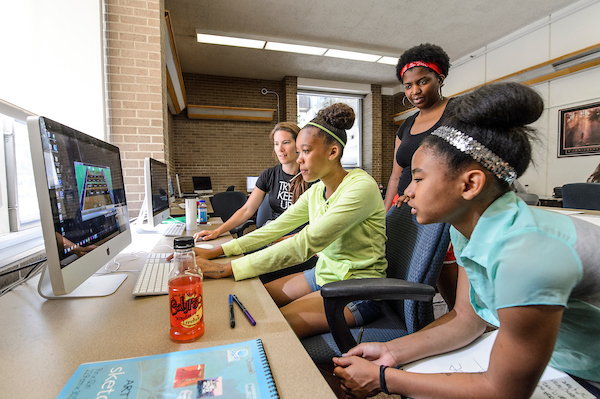
“Our initial challenges were access to technology and shifting our curriculum to online instruction,” said Shanee McCoy, PEOPLE Precollege Assistant Director-Milwaukee. Finding and vetting the appropriate platform to best facilitate programming for more than 400 students, assessing student access to devices and internet, and re-configuring staff workloads were the next challenges to work through, she added.
The priority was to allow students to flow through the system in a way that wouldn’t be confusing, Hunter said. Then staff and student participants were trained to use the platform and policies were developed covering technology and internet access for participants.
“The final step was to redevelop and rethink PEOPLE’s content and staffing for a virtual experience that was in alignment with youth protection policies and best practices. Our teaching specialists were invaluable in this process,” Hunter added.
The adjustment to virtual instruction was conquered in just over two months in order to conduct PEOPLE Summer University, the core of the pre-college program. Students prepare for college through workshops that blend academics, study skills and personal development. They explore how academic majors can lead to specific careers or types of work and how to align their values and ambitions with education goals.
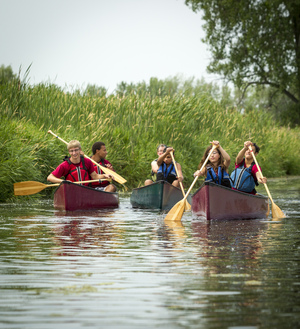
Conservation Biology instructor Matt Tiller introduced himself as a Badger alum who enjoys re-exploring campus area habitat and sharing his love of the environment with PEOPLE students. He lamented not being able to take the class to Picnic Point or explore the rich learning environment of Lake Mendota.
“I went to school at UW for my undergraduate degree and it’s always fun to go back and explore some of the natural areas I explored when I was a student,” Tiller said. A 25-year veteran educator, Tiller teaches ecology, earth science and AP environmental science. He took a moment with his PEOPLE students to lament being stuck inside and physically distant.
“I’d like to hear some voices,” Tiller said. “This is a very different way of teaching because all I see are initials and it’s an hour and a half of not seeing anyone’s face, sometimes it just feels like you’re talking to a computer,” he shared before verbally taking attendance.
Launching from a point of relevancy for the students – the recent social justice protests happening across the country – the class prepared for a discussion on social and personal values, various definitions of activism and how the two concepts are related to conservation and the environment. They thought, they wrote and they practiced signing into separate virtual discussion groups – the virtual version of rearranging classroom desks. In other classes, scholars explore Wisconsin’s geological history of how glaciers formed the state’s resources, discuss the nuances of descriptive terms in literature and learn how pig and human hearts are similar in design and function.
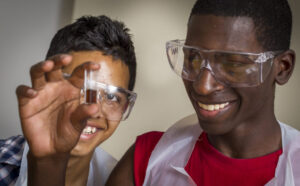
The year ahead is especially pivotal for the 148 rising high school seniors who finished the College and Career Kickstart Program in the field of their choice. Typically, this summer would have been spent in hands-on internships and a prolonged residence hall experience.
“Unfortunately, due to COVID-19, our on-site internships were cancelled this summer,” Hunter said. “Instead, our goal became to introduce students to professionals in virtual formats. Our virtual sessions in-depth academic and career exploration with students in fields directly relevant to their interests.”
Over the course of two weeks, our College and Career Kickstart team, led by Jackie McHugh, presented the opportunity for students to have 8 unique 75-minute sessions in their sub-cluster of future career interest. Sessions were structured in a variety of formats, including career panels, virtual facility tours, research demonstrations, and hands-on projects.
“For example, our Arts & Humanities sub-cluster virtually toured the James Watrous Gallery and our Engineering sub-cluster was challenged to build wind turbines during a session led by the Wisconsin Energy Institute,” Hunter said. “This format opened the doors for some unique opportunities to partner with folks outside of the Madison city limits, and even across state lines. We were able to tap into a nationwide network that included many Badgers across the country that were excited about giving back to their alma mater and our PEOPLE Precollege Scholars.”
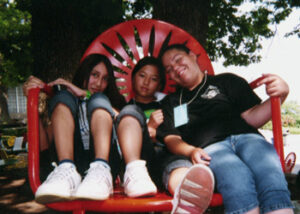
As a result of high expectations from both students and staff, the transition worked well according to PEOPLE Executive Director Gail Ford.
In response to their experience with online learning since the pandemic began, PEOPLE students agree the transition was surprisingly easy and productive.
“I like what we are doing here with PEOPLE,” Scholar Maxwell Marquard said. “I really think something like this would work a lot better.”
“My Precollege Summer University format is just so much better and a lot more organized,” said Scholar Rachel Roberts.
Scholar Stephanie Gonzalez said she came away understanding her Precollege Summer University lessons better than she had understood classes all year.
It is a summer no one will soon forget.
Under the guidance of Matt Zeller, PEOPLE English Teaching Specialist, students compiled a tribute documenting how they managed to survive and thrive during a global pandemic. Alexander Alvarez, PEOPLE Amplified student writing director, curated the reflective works written by PEOPLE Scholars in 2019-2020.
In his foreword Alvarez states: “It is an honor and it gives me the chance to talk about PEOPLE. This generation is very politically charged and that is a constant throughout this collection. You will see these scholars share their views from the deepest parts of their soul. Each entry contains a dive into the identity of the author, a dive into PEOPLE scholars and this generation as a whole.”